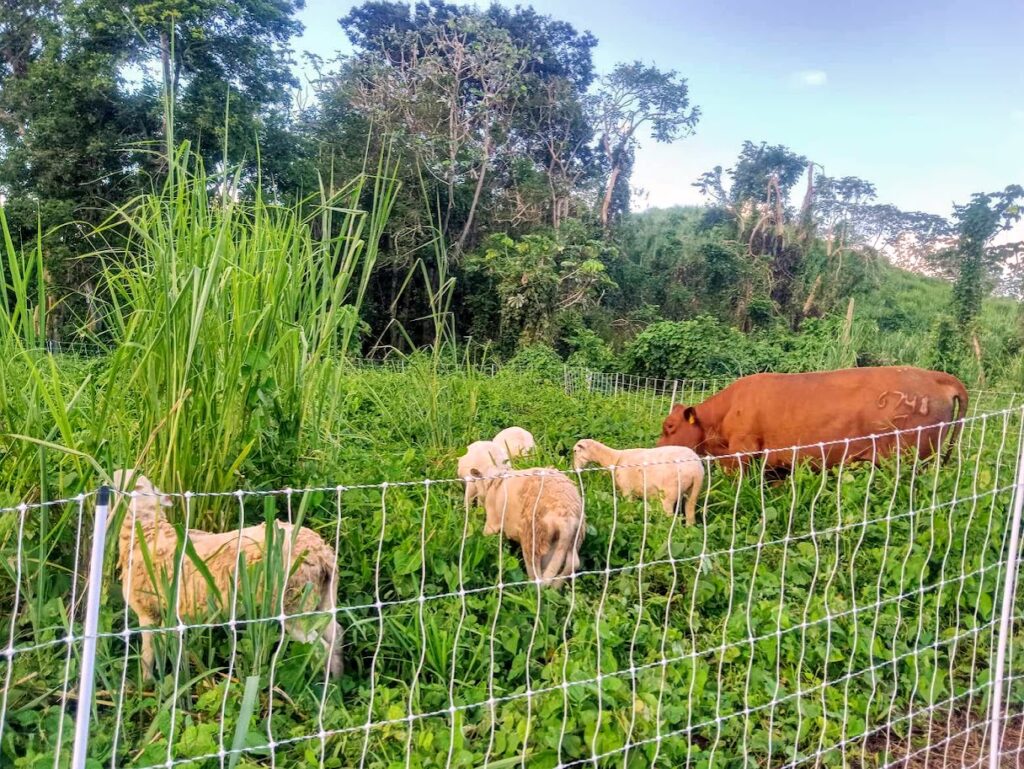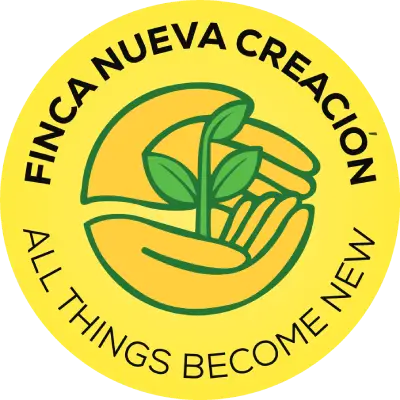Holistic refers to the whole of something rather than only its parts. Holistic farming moves away from prescribed, long-standing rules to provide a framework for planning and decision making.
Keep in mind, I’ve never claimed to be a scientist. My view of holistic farming is taking action and making decisions with the understanding that everything is interconnected.
Holistic Farming vs Herbicides
For example, it would be a lot faster to clear land for paddocks if we sprayed herbicide and bulldozed everything. Using push mowers, chain saws, weedeaters, machetes, and sickles is time-consuming and exhausting. Also, we get a lot of rain and no freezes, so everything regrows really fast (a huge blessing!).
However, we know that herbicide is toxic to more species than just grass and weeds. When you poison the grass, you’re also poisoning the soil that is sitting on top of ground water. You’re exposing bees, earthworms, birds, and millions of other living organisms to a chemical that people wear PPE when spraying. Holistic farming also considers the needs and wants of the humans on the farm. Financially, we are spending more labor, but fewer dollars by clearing without chemicals. Emotionally, we feel better knowing that we are practicing creation care and trying to heal and improve the land that’s been entrusted to us. I don’t want to eat an egg from a hen that ate a dying insect sprayed with pesticides. Do you?

Rotational Grazing
Another aspect of holistic farming that we practice is multi-species rotational grazing. Keeping in mind that everything is interconnected, we will move Boss, our Senepol bull and our small flock of Katahdin sheep into a new paddock created with electric nets. Depending on how fast they eat the grass, they will be moved to a new paddock in a few days. Once they move, the pastured laying hens will move into the paddock they just left. The hens scratching and pecking will help to spread the manure from Boss and the sheep while also eating insect larvae that hatch from the manure.

It would be a lot less labor to build a large, permanent chicken coop as well as creating one or two large paddocks for Boss and the sheep. However, the risk for disease and internal and external parasites goes up with fewer moves. The chickens wouldn’t be enjoying fresh air, sunshine, and fresh areas to scratch and forage. They also wouldn’t be helping to spread the valuable manure left behind by Boss and the sheep. The grass would be at risk for overgrazing as opposed to being allowed regular, planned recovery periods. We would lose out on the satisfaction of knowing that we were providing the happiest and healthiest lives for our animals while improving the soil on the farm. We firmly believe that holistic farming is the best path, but it is not always the easiest or fastest. Together, we can make a healthier planet for future generations.
